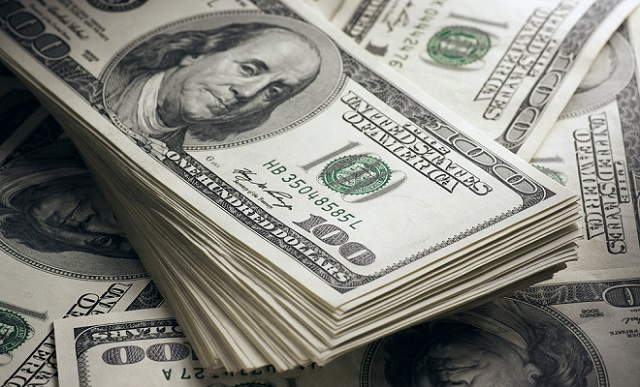
Hong Kong, China | AFP | The dollar took another beating on Thursday after two of Donald Trump’s top cabinet members talked down the currency and hinted at a more belligerent trade policy.
The sell-off in the greenback especially hit exporters on Japan’s Nikkei index, which tumbled for a second straight day, although dollar-priced oil and gold extended gains.
US Treasury Secretary Steven Mnuchin, speaking at the Davos gathering of the political and business elite, said: “Obviously a weaker dollar is good for us, it’s good because it has to do with trade and opportunities.”
His comments sent the US unit, which was already under pressure, tumbling with analysts suggesting it could be a part of the Trump administration’s America First policy to help its own exporters.
They came days after the US announced stinging tariffs on imports of solar panels and large washing machines, angering China and South Korea.
US Commerce Secretary Wilbur Ross defended those tariffs and warned Washington would be prepared to fight back in future against countries it felt had flouted the rules.
The developments ramped up fears of a global trade standoff and worries about their impact on the world economy, which is finally moving on track a decade after the financial crisis.
“To the extent that trade is disrupted, it’s probably not good for economies, for US companies and corporations, and would probably put pressure on the rising stock market,” Michael Cuggino, president and portfolio manager at the Permanent Portfolio Family of Funds in San Francisco, told Bloomberg News.
The dollar’s sell-off was also helped by investors betting on tighter monetary policies by major central banks, bringing them in line with the Federal Reserve.
The dollar took a hit from the developments and in Asia extended the losses, briefly falling below 109 yen for the first time since September.
– Equities drop –
That hit Japan’s benchmark Nikkei 225, which ended 1.1 percent lower, having fallen 0.8 percent Wednesday from a 26-year high.
Stephen Innes, head of Asia-Pacific trading at OANDA, said: “While we already knew the administration previously favoured a weaker dollar, his comments caught the dollar prone and defenceless, opening floodgates to a massive wave of dollar-selling.”
The pound was 1.5 percent up, above $1.43 and at its strongest since Britain voted to leave the European Union in June 2016.
And the euro was at more than three-year highs above $1.24 ahead of a key meeting of the European Central Bank later in the day that will be studied for indications about its plans for reeling in crisis-era stimulus.
Among other currencies the Australian dollar was nearing highs not seen since mid-2015, while the Korean won was up one percent, helped by data showing the country’s economy grew last year at its fastest pace in three years.
The Chinese yuan was at a two-year high, while Indonesia’s rupiah, the Mexican peso and South African rand also rallied.
 The Independent Uganda: You get the Truth we Pay the Price
The Independent Uganda: You get the Truth we Pay the Price





